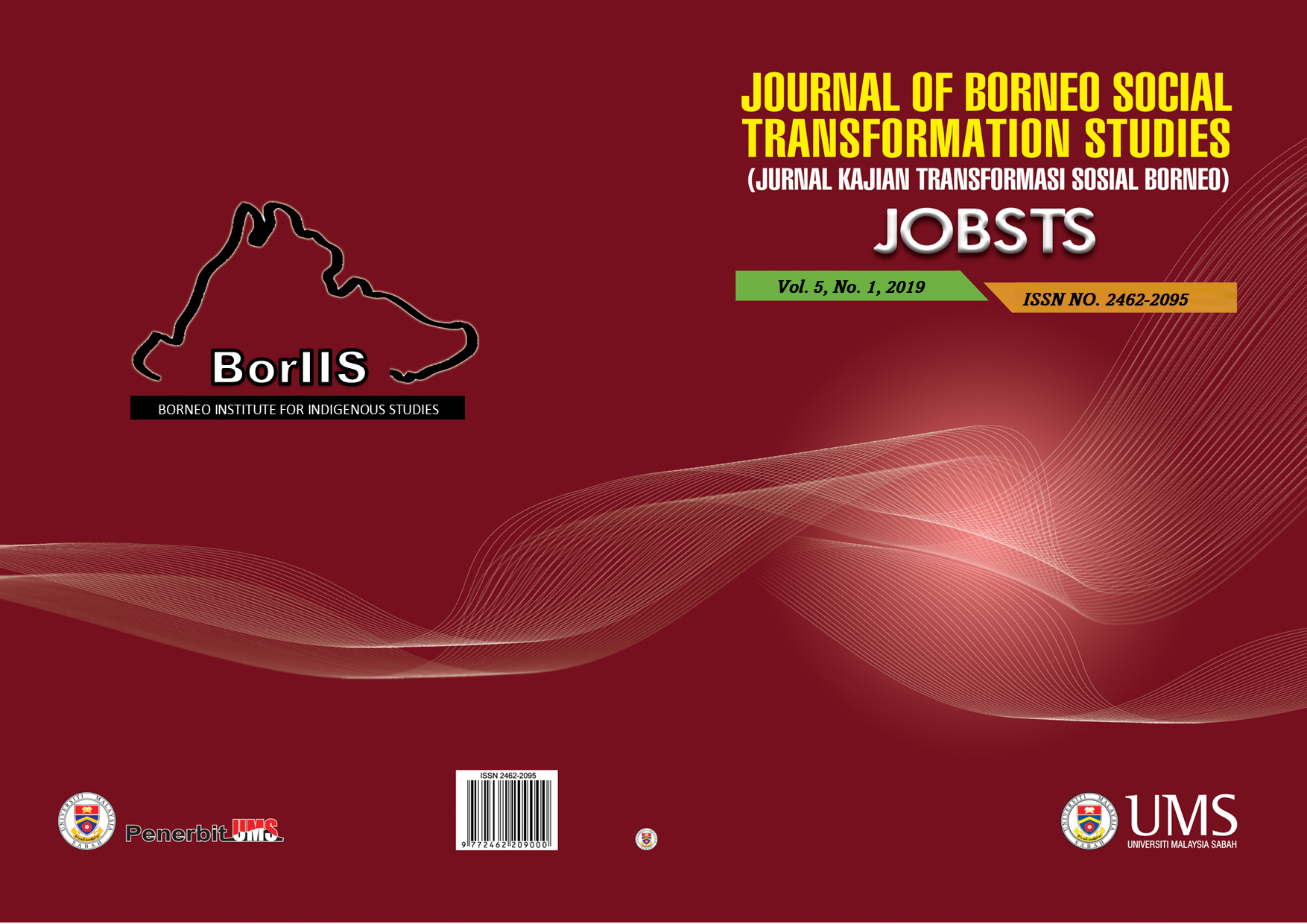DASAR PERBURUHAN DAN IMPAKNYA TERHADAP PERGERAKAN KESATUAN SEKERJA DI MALAYSIA: SATU KAJIAN AWAL
LABOUR POLICY AND ITS IMPACT ON THE MOVEMENT OF TRADE UNION IN MALAYSIA: A PRELIMINARY STUDY
DOI:
https://doi.org/10.51200/jobsts.v0i0.2170Keywords:
Leader, Trade Union, Industrial Relations, Labour Policies, Pemimpin, Kesatuan Sekerja, Hubungan Industri, Dasar Perburuhan.Abstract
Perkembangan pergerakan buruh dan senario hubungan industri di Malaysia telah bermula sejak tahun 1920-an lagi yang turut dipengaruhi oleh dasar pentadbiran British di Tanah Melayu. Sejak detik itu, kesatuan sekerja terus berkembang di Tanah Melayu dan mengalami proses perubahan kesan tindakan kawalan dan pelbagai sekatan termasuklah pengenalan Undang-undang Darurat pada Tahun 1948.Dasar kawalan dan sekatan tersebut terus diamalkan sehingga negara mencapai kemerdekaan pada tahun 1957. Berdasarkan tinjauan terhadap sorotan literatur, terdapat berbagai perubahan tertentu mengenai dasar perburuhan mengikut kepimpinan tertinggi negara iaitu Perdana Menteri yang turut mempengaruhi sistem hubungan industri di Malaysia. Sejak kemerdekaan dicapai, pemimpin atau Perdana Menteri Pertama di Malaysia iaitu Tunku Abdul Rahman telah mencorakkan sistem hubungan industri yang berubah dari sistem voluntary kepada corak compulsory arbitration melalui penguatkuasaan Akta Perhubungan Perusahaan, 1967. Manakala perubahan telah berlaku pada zaman pemerintahan Perdana Menteri kedua, iaitu Tun Abdul Razak yang telah memperkenalkan sistem akomodatif antara kesatuan sekerja dan majikan. Perubahan seterusnya berlaku pada tahun 1976 apabila Tun Hussien Onn telah menggubal dasar perburuhan yang lebih ketat ke atas pergerakan kesatuan sekerja. Perubahan terus berlaku melalui kepimpinan baru pada tahun 1981 di bawah pentadbiran Tun Dr. Mahathir Muhammad yang telah memperkenalkan pelbagai dasar bagi menyokong proses perindustrian negara. Antaranya ialah Dasar Pandang ke Timur yang telah menggalakkan kewujudan kesatuan sekerja dalaman. Selain itu, penggunaan Akta Keselamatan Dalam Negeri (ISA) turut diperluaskan bagi mengawal pemimpin kesatuan yang cenderung bersifat konfliktual. Perubahan seterusnya berlaku pada era pentadbiran Tun Abdullah yang memperkenalkan corak pentadbiran Islamik melalui amalan Islam Hadari sejak tahun 2003. Peringkat seterusnya adalah di bawah pentadbiran Datuk Seri Mohd. Najib Tun Abdul Razak yang memperkenalkan program transformasi negara dan konsep 1 Malaysia sejak tahun 2009. Peringkat terkahir ialah pada era Malaysia Baharu di bawah Pentadbiran Tun Dr. Mahathir Mohammad setelah kemenangan Pakatan Harapan dalam Pilihanraya Umum ke-14 pada tahun 2018. Berdasarkan senario tersebut, kertas kerja ini menjelaskan perubahan dasar kerajaan serta tahap penerimaan pergerakan kesatuan sekerja sepanjang era pemerintahan keenam-enam Perdana Menteri Malaysia. Akhirnya, analisis perubahan tersebut dibincangkan berkaitan implikasinya terhadap kelangsungan kesatuan sekerja yang turut mempengaruhi corak hubungan industri di Malaysia.
The development of the labour movement and the industry relations scenario in Malaysia began in the 1920s, which were influenced by the British administration policies in Malaya. Since then, the trade unions continued to grow in Malaya and experienced a process of change because of the control measures and various restrictions including the Emergency Law in 1948. The policies and controls were practiced until the country gained independence in 1957. Based on the literature review, there are certain changes in the labour policy based on the country’s highest leadership, the Prime Minister, which also affects the industrial relations system in Malaysia. Since independence, the leader or the first Prime Minister of Malaysia, Tunku Abdul Rahman had shaped the industrial relations system from a voluntary system to a compulsory arbitration through the enactment of the Industrial Relations Act, 1967. Meanwhile, changes have taken place during the reign of the second Prime Minister, Tun Abdul Razak, who introduced the accommodation system between the trade union and the employers. The next change occurred in 1976 when Tun Hussein Onn drafted a more stringent labour policy on the trade union movement. Change continued through the new leadership in 1981 under the administration of Tun Dr. Mahathir Muhammad who introduced various policies to support the country's industrial process. Among them is the Look East policy that promotes the existence of internal trade unions. In addition, the use of the Internal Security Act (ISA) has also been extended to control union leaders who tend to be conflicted. The next change occurred in the era of Tun Abdullah’s administration, which introduced the Islamic administration pattern through Islam Hadari practices since 2003. The next stage is under the administration of Datuk Seri Mohd Najib Tun Razak, who had introduced national transformation and the 1 Malaysia concept. The final stage is in the New Malaysia era under the leadership of Tun Dr Mahathir Mohammad after Pakatan Harapan’s 2018 victory in the 14th general election. Based on these scenarios, this paper aims to explain the changes in the government policies, and the level of acceptance of the trade unions during the reign of all the six Prime Ministers. Finally, the analysis of these changes will be discussed in terms of their implications on the sustainability of trade unions that influences the pattern of industrial relations in Malaysia.






